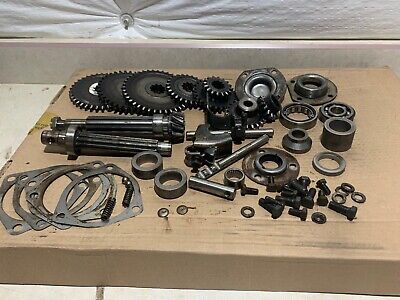Shifting Gears: The Evolution of the Automotive Industry

The Importance of Shifting Gears Today
The concept of ‘shifting gears’ has become synonymous with adaptation and innovation in the automotive industry. As the world increasingly emphasizes sustainability, energy efficiency, and advanced technology, automakers are being challenged to evolve their strategies rapidly. In 2023, this transformation is more significant than ever as issues such as climate change and economic uncertainty push the industry towards a new paradigm of operation.
Current Trends Driving Change
Recent events reflect a notable shift in focus from traditional combustion engines to electric vehicles (EVs). Major manufacturers like Ford and General Motors are investing billions of dollars in EV technology and production. For instance, Ford has announced plans to produce 2 million electric vehicles per year by 2026, aiming to capture a significant share of the growing market demand.
Furthermore, regulatory changes across the globe are prompting manufacturers to rethink their vehicle designs. Europe aims to ban the sale of new petrol and diesel cars by 2035, while in Canada, the government has set a target for all new cars sold to be zero-emission vehicles by 2035 as well. These regulations effectively accelerate the industry’s shift towards more sustainable alternatives.
Technological Advancements
Automakers are not only shifting the types of vehicles they produce but also how they integrate technology into the driving experience. The rise of autonomous driving technologies and enhanced connectivity is re-defining consumer expectations. Companies like Tesla are at the forefront, pushing for a comprehensive approach that makes cars safer, smarter, and more user-friendly.
Additionally, the use of artificial intelligence (AI) in manufacturing processes has improved efficiency and reduced waste, leading to lower costs and a smaller environmental footprint. This shift in gears indicates not only an evolution in products but a transformation in corporate strategies and practices.
Conclusion and Future Outlook
As the automotive industry continues to navigate rapid changes, the ability to ‘shift gears’ effectively will be crucial for survival and success. Companies that embrace innovation and adaptability will likely lead the market, while those resistant to change may struggle in an increasingly competitive landscape. With considerable investments in electric and autonomous vehicle technologies underway, the industry’s future looks set to be smarter, cleaner, and more efficient. Shifting gears is no longer just a mechanical adjustment; it has grown into a critical strategy for sustainability and competitiveness in today’s global economy.








